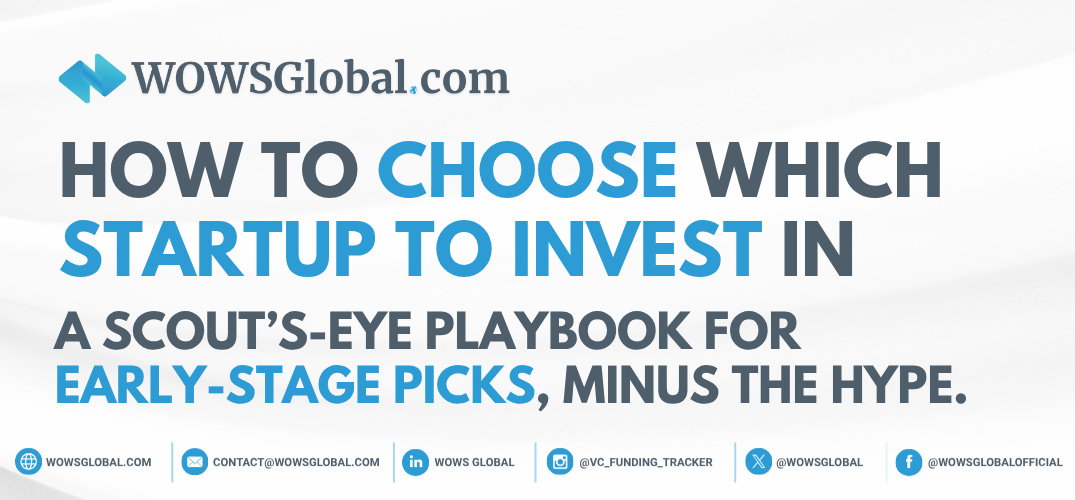Start-Up Fundraising: Challenges & Roadblocks
Finance Investment Investor Startup

90% of start-ups fail. To say all of them don’t have valid business cases, professional leadership teams or a strong drive to succeed would be too simple and naïve. Data from thorough market research demonstrates that a majority of start-up leaders believe that their greatest obstacle lies in fundraising. Considering Southeast Asia alone has 79 open Venture Capital funds with over $4.7 billion ready and available, not including alternative sources of funding, this should not be the case. Outlined below are some of the key reasons why fundraising remains a challenge based on the perspective of a regional start-up CFO and VC investment committee board member.
Overwhelming Investor Options
Investment firms have different investment styles, strategic interests and preferences for investing in specific sectors. In the very first stage of fundraising, start-ups don’t often have access to this information and cannot extrapolate which investors to strategically target as a strong fit. With so many available options, identifying the ideal investor can become overwhelming and time consuming. Time and again start-ups make the mistake of approaching misfit investors and this can become very inefficient and costly.

Lack of Resources
Assuming a start-up is able to successfully identify the ideal investors, the next stage of challenges stem from a lack of resources. Data requests from investors can be extensive and require hard core skill sets to gather effectively and efficiently. From legal, to finance, to technical knowledge and unit economic requirements; investors can demand a plethora of diversified information. Because start-ups have constrained budgets, accessing the required skilled labor and resources may not always be an option. While there is an exhaustive list of tools such as cap table management platforms, BI dashboards, data rooms and more that can assist start-ups in this process, these tools have their own shortcomings and can be expensive. Start-up leadership therefore choose to self-study and take on these tasks and responsibilities with limited resources themselves. This impacts the quality and amount of time required to complete the data requests.
Time Constraints
Due to the challenges described above, an average fundraising round can take 6-9 months and involve a significant amount of data collection and negotiations. During this period, founders and start-up finance teams find themselves distracted from the primary objective of running their company. The opportunity cost can have a severe impact on the business and this has routinely been amongst the leading causes for start-ups failing.
Unfamiliar Legal Terms
After a start-up is successful in overcoming the challenges highlighted above and arrives at the term sheet negotiation stage, they face yet another hurdle stemming from lack of experience and familiarity. Due to budgeting constraints, while legal teams can assist start-ups with vetting term sheets, more often than not, they are not engaged in negotiating the commercials. For startups, the terminology on a term sheet alone can be a challenge to decipher. Investment firms have far more experience and resources negotiating term sheets and can strong arm inexperienced start-ups to agree to unfair terms. Some of the ways in which this can happen include investors offering overly high valuations, rewarding themselves with higher liquidation preference rights that may lead to founders losing control, KPI based valuations that impact the strategic growth and profitability of the company and restricting access to other potential investors.
Concluding Note
Clearly fundraising remains a key challenge for start-ups and can be attributed as a leading cause for their high mortality rate. Start-ups could benefit from assistance in this regard. The WOWS platform, designed by veteran investors and start-up leaders, has been created to tackle the aforementioned problems and help start-ups fundraise smarter and more successfully. It is essentially an end-to-end ecosystem consisting of tools to bolster fundraising and can be an asset for these growing businesses.
Need support? Reach out for advice.
Related Posts
-

Fundraising 409A Valuation Cap Table Management Investor
WTF Is 409A and Why Should I Care?
Learn what a 409A valuation is, why it matters for employee stock options and how it impacts founders, investors, taxes and diligence, plus how WOWS Global can help. -

AI Finance Startup Finance CFO
Smart Finance, Winning Moves: How Fractional CFOs Use Tech and AI to Raise the Score
A quick, plain-English playbook on how fractional CFOs apply AI to sharpen forecasts, streamline reporting, and guide smarter decisions, so teams move faster and investors get clarity. Talk to WOWS Global to put it in motion. -

SEA & Middle East Investment AI Highlight
WOWS’ 2026 Predictions: 10 Bets on Where Southeast Asia’s Money Will Move Next
WOWS’ 2026 Predictions are a forward-looking map of where Southeast Asia’s money could move next: operator-led capital, Thailand’s mid-stage moment, SME credit as a major return engine, an AI survival test, and a wave of M&A. Investors, founders, and SMEs can use these 10 bets to plan for what may come. -

Investor Due Diligence Readiness Virtual Data Room Founder
Data Room Done Right: A Founder’s 30-Item Investor Readiness Checklist
Investors don’t fund mysteries. This Seed–Series A checklist shows exactly what to include, governance, product, metrics, financials, security, and round mechanics, so diligence speeds up, not stalls. Need help? WOWS Global can review and structure your data room. -

Startup & Venture Capital Early Startups Founder Investment
How to Choose Which Startup to Invest In
Choosing a startup isn’t a coin toss. This quick-read playbook covers market sizing, founder fit, unit economics, risk mapping, and terms, written in a toned-down sports recap style. Wrap up with “WOWS Insight,” where WOWS Global explains how it matches investors with companies that fit their thesis, stage, and traction. -

Exit Strategy M&A readiness Cap Table Startup Exits Investor
Planning the Finish Line: Why Every Business Needs an Exit Strategy
Launch matters, but exits set the score. Learn how early planning, clean governance, and buyer mapping turn hard-won growth into the best possible outcome.
